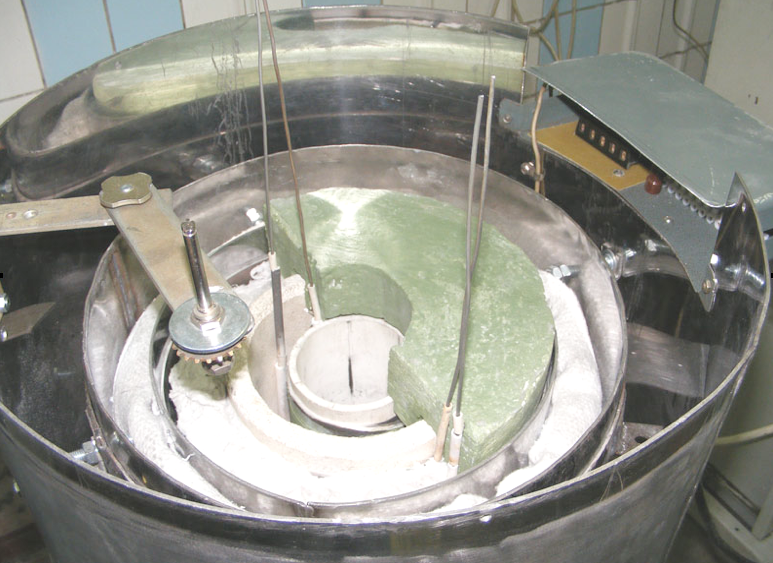The development of the formula of fire-resistant fettling and heat insulation of the furnaces in the electrode production
The new formula of carbon granular materials for fettling and thermal insulation of hightemperature equipment in the electrode production has been developed. The necessity to change the multicomponent thermal insulation charge on the carbone coke basis monocomponent charge was proved. Having done theoretical and experimental research, the quantitative influence of the material and granulometric composition, material humidity, mount fettling and thermal insulation conditions on such material properties as thermal conductivity, electrical conductivity under the temperatures from 300 К to 1300 К was found out. That enabled to formulate the basic requirements to the physical properties of fettling and thermal insulation materials in the electrode production. The experimental data concerning temperature dependence between thermal conductivity factor of the mixtures of raw and graphitized coke breakages with various percentage ratios and granulometric composition were obtained. The dependence factor between thermal conductivity and electrical resistance of raw coke of different composition under pressure till 54 kPa and temperature till 1300 К was determined. The correlation ratios between thermal and electrical conductivity depending on the temperature and the coke composition were found out. With the help of numerical analysis of thermal and electrical state of Acheson`s furnaces using charges of different fractional and structural composition the new formula of carbon granular material fettling and thermal insulation was developed. The influence of the developed materials on carbon oxide, quality of electrode products, efficiency and electrical and energy losses of graphitization furnaces was analysed. The developed formula of thermal insulation charge was checked using the experimental and digital modeling data. As a result, the increase of the maximum of minimal core temperature by 3 % and the decrease of maximum nonuniformity of the temperature field on the electrode products during the process more than 2 times as much were determined. The results of the work have been introduced into the industry.

| Attachment | Size |
|---|---|
| 1.37 MB |




